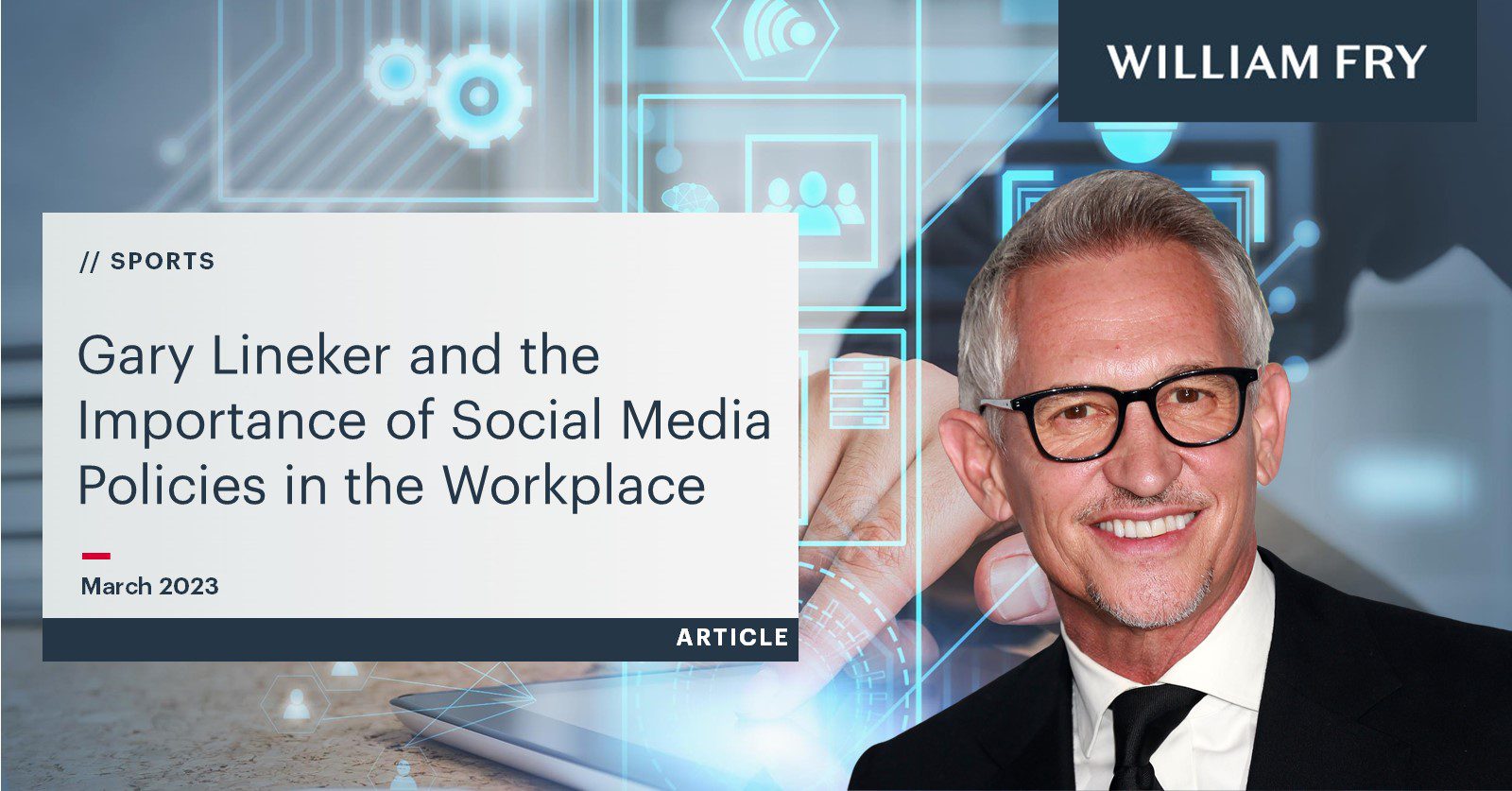In case you missed it
Recently, the dominant headline in the news revolved around Gary Lineker and his politicised tweet criticising the UK Government’s new immigration policy. The tweet saw the BBC Match of the Day presenter removed from his presenting duties pending an investigation as to whether he had broken the BBC’s ‘Guidelines on Impartiality’ and, more specifically, their ‘Guidance on Individual Use of Social Media’ (Guidelines). The BBC subsequently reinstated Mr Lineker following the investigation. The difficult position the BBC found itself in is a timely reminder that employers should have effective social media policies in place to deal with such incidents.
The BBC approach – lessons learned
Employers can learn lessons from the BBC’s handling of the situation and each of the possible grounds for Mr Lineker’s reinstatement.
- Uncertain scope
It was suggested that as an independent contractor, the Guidelines did not apply to Mr Lineker. However, the fact that his reinstatement comes with a temporary condition of compliance with the BBC’s editorial and social media guidelines suggests otherwise.This uncertainty highlights the need for a social media policy to be sufficiently broad to bring all intended individuals under its remit. It also indicates that a best practice for employers is to set out the parameters of the policy to make sure everything is clear.
- Reputational risk & disproportionate response
The BBC could not ignore the public backlash which followed Mr Lineker’s removal and its impact on the organisation’s wider reputation. It was widely felt that the decision to remove him was disproportionate to the purported breach of the BBC’s policies.Social media provides a ‘town square’ where public backlash can gain momentum and damage an organisation’s reputation. This reputational damage could come from the employee or contractor’s comments or, as we have seen in this instance, from the organisation’s handling of subsequent disciplinary action.
Employers must have comprehensive policies to mitigate the risk that public remarks could adversely affect their reputation. Objective and fair investigation and disciplinary procedures must be in place where an employer feels an employee or contractor has breached these policies, and should a sanction be applied, it must be proportionate to the breach committed.
- Solidarity boycott
Mr Lineker’s colleagues announced a boycott of their duties in solidarity with Mr Lineker. This boycott forced the BBC to rethink its decision as it heavily impacted scheduled programming.Where a walkout occurs, it is difficult for employers to take disciplinary action, even when it represents a contract breach. For example, in 2018, Google employees worldwide staged a walkout over the company’s response to executives accused of sexual harassment
The blurred line – professional life v private life
The BBC has since announced an independent review of its guidelines, particularly for independent contractors. As currently drafted, the guidelines contain the vague provision:
There are also others who are not journalists or involved in factual programming who nevertheless have an additional responsibility to the BBC because of their profile with the BBC.
Although the wording seems to have been incorporated as a “catch-all” provision, any robust policies should not leave any ambiguity as to the scope of their application.
Difficulties may also arise where the line between professional and private life is blurred.
The English case Smith v Trafford Housing Trust [2012] EWHC 3221 (Ch) discusses an earlier example of this blurred line where a manager posted comments on Facebook that legislation permitting gay marriages to take place in churches was “an equality too far”. The employer’s code of conduct stated:
Employees should not engage in activities which may bring the Trust into disrepute… where you can be identified as an employee… via any web-based media such as… Facebook.
The manager was found guilty of gross misconduct following a disciplinary procedure and was demoted to a non-managerial position. He then brought proceedings against his employer.
The court found that he had not brought his employer into disrepute as the personal information on his Facebook profile made it clear he was making the comments on his personal account and not on behalf of his employer. His demotion therefore constituted a breach of contract.
Coming back to the world of football, the case of Lerwill v Aston Villa Football Club Ltd ET/1304758/10 highlights the importance of having social media policies in the first instance. Here, the club’s historian was dismissed after making inappropriate comments on an unofficial website. However, in the absence of a social media policy, the court found his summary dismissal was unreasonable as the club had not informed him of the possible consequences of his actions.
Key takeaways
The Gary Lineker story focuses on the difficulties that can arise for organisations in the social media age and shows us that the line between professional and private life is not always clear. It serves as a wake-up call for individuals to be wary of what they post online and for organisations to have clear social media policies in place so appropriate action can be taken where an individual does cross that line.
In summary, a prudent social media policy should:
- Establish clear guidelines and standards on the accepted use of social media in the workplace.
- Contain clear information about disciplinary procedures for breaches and the potential consequences for such breaches.
- Warn individuals that employers may take disciplinary action with posts on their personal social media accounts where a connection can be drawn to their workplace.
Contributed by Elaine Egan & Mark Gilsenan


